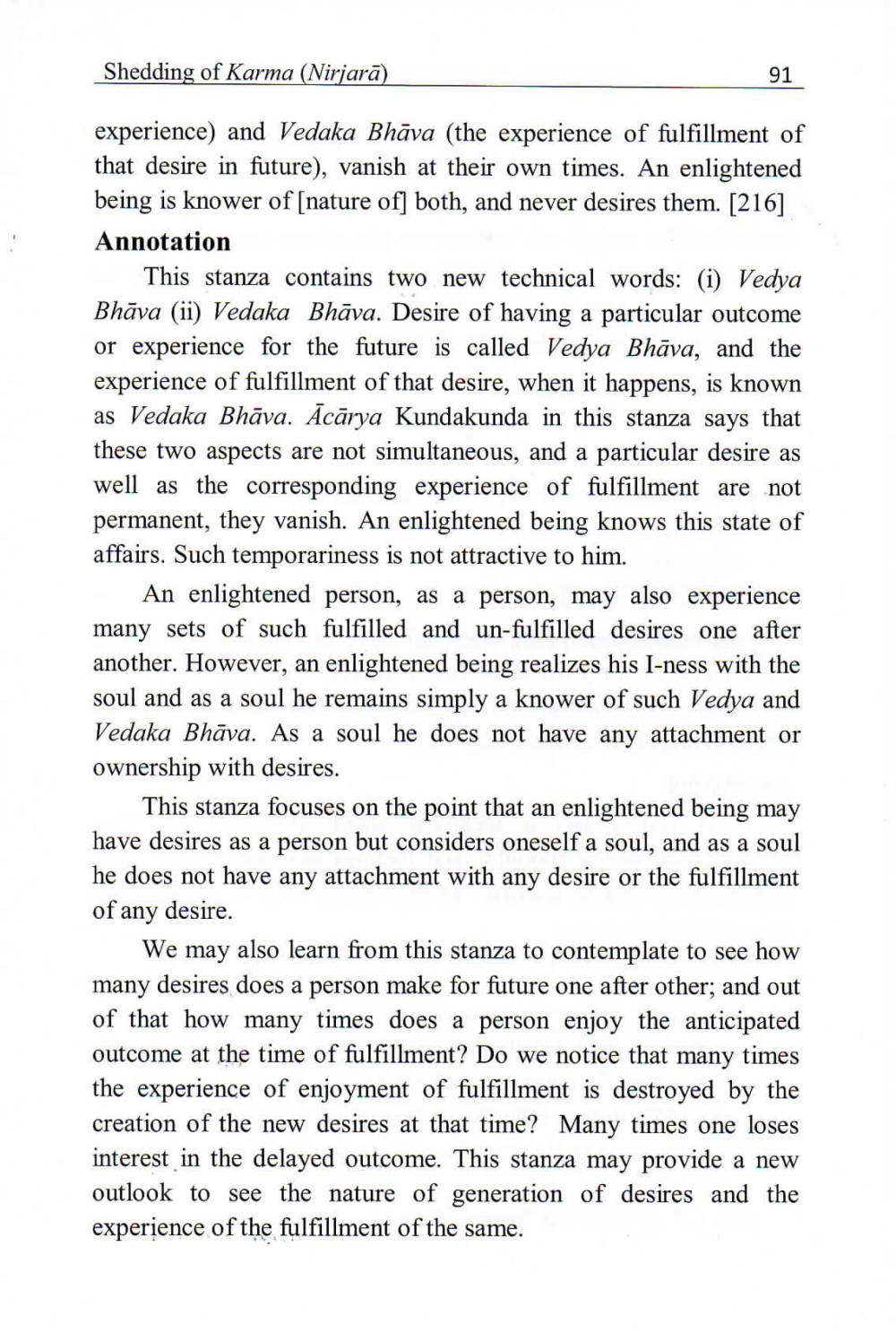________________
Shedding of Karma (Nirjarā)
91
experience) and Vedaka Bhāva (the experience of fulfillment of that desire in future), vanish at their own times. An enlightened being is knower of [nature of] both, and never desires them. [216] Annotation
This stanza contains two new technical words: (i) Vedya Bhāva (ii) Vedaka Bhāva. Desire of having a particular outcome or experience for the future is called Vedya Bhāva, and the experience of fulfillment of that desire, when it happens, is known as Vedaka Bhāva. Ācārya Kundakunda in this stanza says that these two aspects are not simultaneous, and a particular desire as well as the corresponding experience of fulfillment are not permanent, they vanish. An enlightened being knows this state of affairs. Such temporariness is not attractive to him.
An enlightened person, as a person, may also experience many sets of such fulfilled and un-fulfilled desires one after another. However, an enlightened being realizes his I-ness with the soul and as a soul he remains simply a knower of such Vedya and Vedaka Bhāva. As a soul he does not have any attachment or ownership with desires.
This stanza focuses on the point that an enlightened being may have desires as a person but considers oneself a soul, and as a soul he does not have any attachment with any desire or the fulfillment of any desire
We may also learn from this stanza to contemplate to see how many desires does a person make for future one after other; and out of that how many times does a person enjoy the anticipated outcome at the time of fulfillment? Do we notice that many times the experience of enjoyment of fulfillment is destroyed by the creation of the new desires at that time? Many times one loses interest in the delayed outcome. This stanza may provide a new outlook to see the nature of generation of desires and the experience of the fulfillment of the same.




